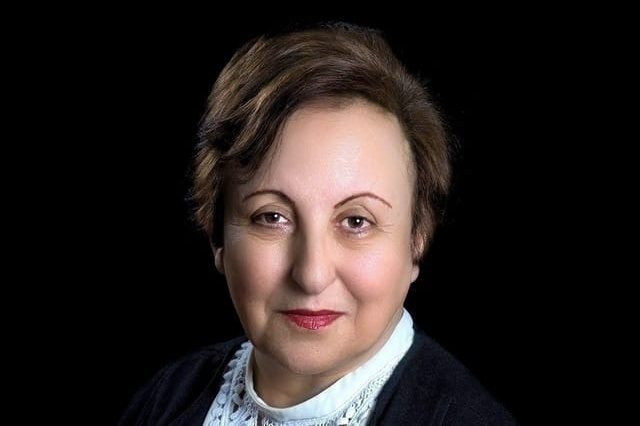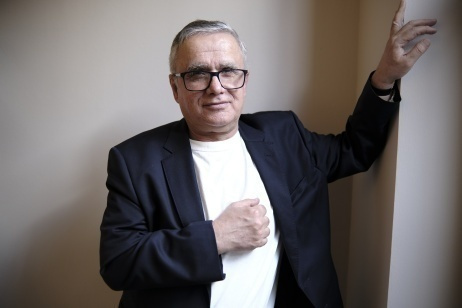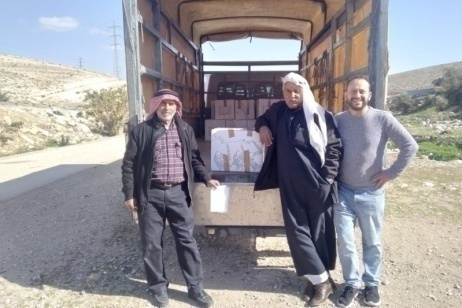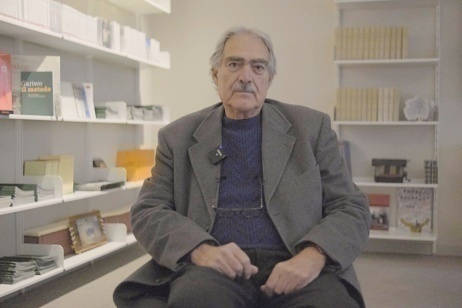Shirin Ebadi was the first woman who held the position of judge in the history of Iran and the first Muslim woman who received the Nobel Peace Prize in 2003 for her commitment to defending human rights.
Her life changed dramatically after 1979 revolution, when she was forced to leave the judiciary. Due to her commitment to the defence of human and civil rights, namely women’s rights, the Iranian regime tried to hinder her in every possible way, making her life impossible. Not only has she been threatened several times, also her family members have suffered oppression: her husband was tortured and then forced to accuse her on television of betraying her country, her sister was arrested and her property was seized.
In November 2009, Tehran police raided her flat, beating her husband and kidnapping the Nobel Peace Prize winner. At the time of the incident, Ebadi had been in London since June, in a self-imposed exile to escape an arrest warrant. In London, Ebadi went on fighting for democratic freedoms in her country. This commitment became even more urgent last year, when Mahsa Amini, a 22-year-old Kurdish girl, was killed for wearing her hijab inappropriately.
The veil has been imposed on all women since 1979 Islamic revolution. It took more than forty years for a new rebellion to break out. How come? And why now?
1979 revolution took place in February. Soon after, when the hijab became mandatory and women were forced to go to work wearing the veil, we took to the streets in protest. It was 8th March 1979 and that protest was a shock to the regime. Unfortunately, that rule has remained in force all these years and we, the women of Iran, have expressed our dissent in many ways over time. However, this time, after Mahsa Amini’s killing, the protest spread out and involved different fractions of society, partly as a consequence of the fact that in forty-four years, the regime has never responded to the demands of the people.
Iranian women are not only fighting against the obligation to wear the veil, but also for our fundamental rights that have been trampled on and eliminated throughout the years. One could say that the veil is just a pretext to demand the same rights men have in Iran.
During the protests of last year, the images we saw from Iran on social media were really striking. How have they impacted on you?
I am very proud to see all these young people protesting today. The new generation is much braver than mine. There are even thirteen and fourteen-year-old girls who are fighting against the regime.
The regime has attacked some girls’ schools using chemical gas, causing the poisoning and death of many of them. Despite all this, these young women continue to oppose and fight for their rights.
You live between London and the United States. How do you see Western democracy in the face of the great strengthening of extreme right-wing parties of the last few years?
I am firmly against the phrase “Western democracy”. Democracy is a concept that should have no Western or Eastern connotations. We should not consider a country to be democratic just because elections are held there. Indeed, many dictators have come to power through voting. Democracy implies that, in a country, the majority respects the minority and guarantees fundamental rights.
With other jurists, you have asked European countries to withdraw their ambassadors from Iran and to reduce diplomatic and consular relations. Do you think that as long as the West tolerates the Iranian regime, there will be little change?
The Iranian people are the only ones who can make this revolution. However, democratic countries, especially European ones, may try to avoid helping the dictatorial regime. There are three reasons why Europe seems unwilling to take a clear stance against the regime of the Islamic Republic of Iran.
The first once is economic, as it is a rich country and many economic interests subsist between Europe and Iran. The second one is linked to the fact that Iran is a nuclear power, which makes European countries very cautious about opposing such a force. And third, Europe fears that direct confrontation may lead to an exodus of Iranian immigrants.
These are the main reasons why the West is trying to maintain a dialogue with the regime, while turning a blind eye to the crimes committed in the country.
During the protests, we saw mostly young people and, secondly, several men. Does this mean that there is a generation in Iran that is no longer willing to accept the regime? What are those who protested willing to pay?
Right now, our prisons are full of young people, but despite this, people are still protesting. Protests, of course, are not as massive and constant as they used to be, but people still go out into the streets at night.
The Iranian people know that the price to pay is high. Many people who opposed the regime have lost their jobs, many actors have been banned from theatres and many shows have been censored. Those who have been arrested suffer mistreatment and torture in prisons. People are hanged simply for taking part in the protests. All this shows that the courage of people goes beyond the oppression of the dictatorial regime. People have finally overcome their fear and are no longer standing still. If we have reached this point, victory will be ours. However, time is needed to consolidate such awareness. This rebellion is like a fruit that needs time to ripen.
What do you think that the name of the protests, “Woman, Life, Freedom”, reflects? Is it common awareness?
The revolution in Iran is not only political, it is also cultural. In the last forty years, the slogan for opposing the regime was related to becoming martyrs of ideology, and therefore death was often mentioned. However, the new slogan “Woman, Life and Freedom” is about life, and the givers of life are women, the Iranian women who wish to be free.
You have consistently collaborated in your fight for rights with activist Narges Mohammadi, who is still in prison. Why is somebody like Narges so important and inspirational for so many generations of Iranian activists and ordinary Iranian citizens?
Narges Mohammadi and I were part of the same association, which we founded at the time. She was the secretary of the association. Narges was imprisoned for six years, then released and remained free for one year. Unfortunately, she is in prison again. However, Narges is not the only woman fighting for women’s rights in Iran. Fortunately, there are many other women like Narges Mohammadi who have inspired a new generation of women to make this revolution.
What is freedom for you?
I was threatened repeatedly. I read the order for my killing when I was following the Forouhar case, the couple murdered in their home.
I refused escort because I prefer to be free. If someone wants to kill you, they will. Threats only serve to create fear and force people to keep quiet. Freedom means that every human being must retain his or her dignity without infringing on the freedom of others and on collective freedom. One of the reasons that can lead to the loss of freedom is poverty; therefore, to preserve dignity, we must first of all fight poverty in the world.
Gariwo wishes to thank Association Maanà and its president Rayhane Tabrizi for their valuable contribution to this interview.







